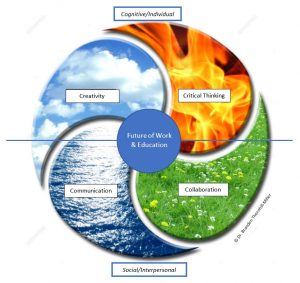“Creativity and Innovation Profiling”
My work teaching and supervising research projects on creativity in Oxford led in 2009 to the establishment of “TheCreativeDifference.net” website aimed at understanding and profiling the individual differences associated with creativity in different tasks and domains and continues today there and through the Creativity Profiling Project (CreativityProfiling.org)
“Enhancement of Creativity Using Virtual Reality”
Strategic manipulation of environment, experience, emotions, and remote group contact to expand useful idea generation and innovation.
“Individual Differences in Cognitive Biases: Psychometric Test Development”
Developing a series of psychometric instruments for a range of cognitive biases crucially important for decision making, but for which not many valid and useful measures of individual and cultural differences currently exist.
“Rationality, Inter-group Conflict, and Religious Belief”
A cross-disciplinary exploration of the problems and possibilities for religious belief in an age of science and globalization.
“Leading Beyond the Tribe: A Psychometric Study of Leadership and the Paradigm Shift towards Global Perspectives.”
An ongoing study of hundreds of young, leaders selected to participant in the Preparing Global Leaders Foundations programs around the world since 2013.
“The Visionary Personality: A Theory of Culture-shaping Individual Differences.”
Ongoing research based upon tools developed and studies carried out on over a thousand participants while at the University of Oxford.
post: 14 June 2021
” ‘Crea-Critical Collab-ication’: a New Dynamic Interactionist Model of the 4Cs”
Partly as a result of my work over the last three or four years on 21st Century Skills and the future of education and work with the International Institute for Competency Development and the OECD, I have proposed a model for understanding, packaging, and promoting the 4Cs, potentially helpful both for pedagogical and policy purposes.

” ‘Crea-Critical Collab-ication’: a New Dynamic Interactionist Model of the 4Cs”
(Diagram illustrating the interpenetration of Creativity, Critical thinking, Collaboration, and Communication in dimensional space and according to their differing potential cognitive & individual vs social & interpersonal emphases)
I previously proposed the portmanteau “crea-critical thinking” to characterize the partial overlap and complementarity between aspects of creative and critical thinking. Similarly, and, to playfully re-package the 4Cs for promotion and pedagogical purposes, we could suggest “Crea-critical Collab-ication” as a portmanteau verbal representation of this four-way interrelationship between the 4Cs.
In any event, the 4Cs are not completely separated entities, but can be seen four important, in interlinked elements that can help individuals in their learning process and synergistical bootstrap the development of their cognitive potentials. Their teaching and development require a complex intervention and mobilization of psychosocial resources—a major shift in pedagogical techniques and even changes institutional structures (Ananiadou & Claro, 2009). These efforts are both aided and complicated by the massive changes and rates of change caused by evolving digital technologies (Van Laar, 2017).
Further Proposal: A “7Cs Model for the Future of Education & Work”
Traditional educational approaches cannot meet the educational needs of our emergent societies if they do not internalize, promote, and assess in line with the new learner characteristics of the 21st century (Sahin, 2009).
There can be many valid ways to parse a conceptual space. But we choose to look beyond a strictly defined category of “skills” and consider larger practical and global contexts, I would also argue for the inclusion of at least three additional Cs: “Computer literacy,” “Cross-cultural awareness” and “Citizenship/Character”) into future models for the future on education and work.